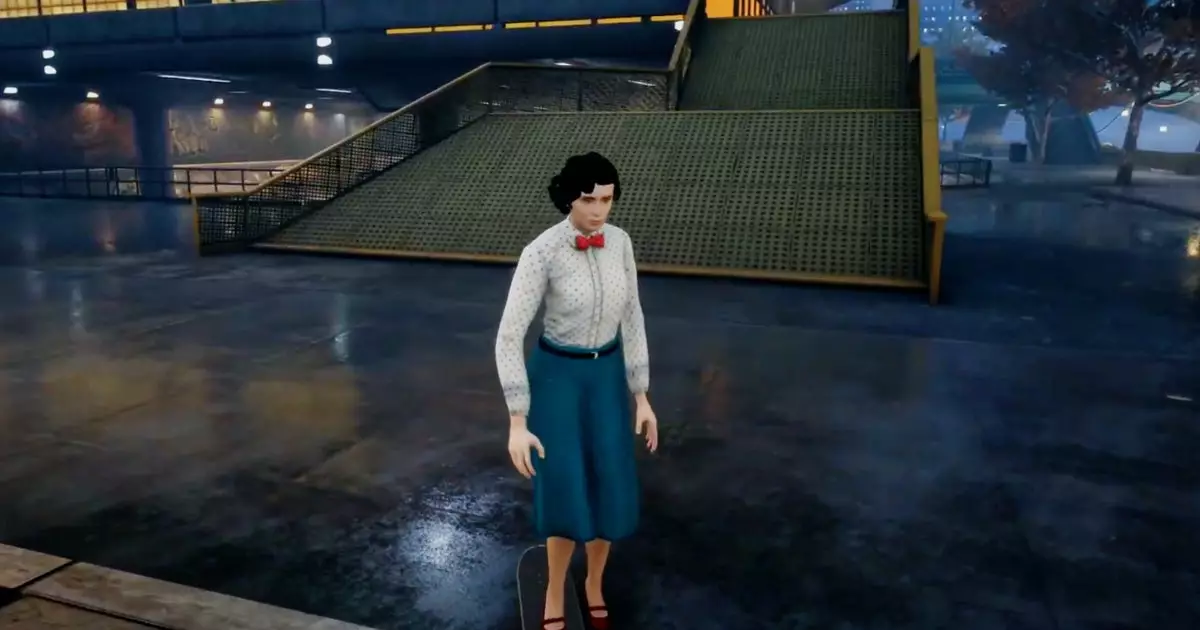The recent launch of Tony Hawk’s Pro Skater 3+4 underscores a pivotal shift in how gamers and developers perceive classic titles. What once served solely as entertainment has now become a canvas for creative expression, thanks to the robust modding community. This phenomenon exemplifies the evolving landscape of gaming—where nostalgia is not static but continually rejuvenated through innovative modifications. While the core game offers familiar excitement, the true magic lies in the boundless opportunities for personalization, transforming the experience into something uniquely one’s own.
Instead of consuming products passively, modern players are empowered to shape their gaming worlds. The active engagement fostered by mods fosters a sense of ownership and community, where shared creativity leads to shared joy. This democratization of content creation has turned everyday gamers into digital artisans, redefining the role of the player from spectator to artist. It’s a testament to how the industry’s flexibility cultivates a thriving culture of experimentation that keeps the gaming ecosystem vibrant and relevant.
The Magic of Cross-Genre Creativity
What is especially remarkable about the modding scene in THPS 3+4 is the sheer audacity of the character swaps. Talented creators like Huckleberrypie have pushed the boundaries by reimaging skaters as iconic characters from unrelated universes—ranging from Tommy Angelo from Mafia to Elsa from Frozen. This type of creativity showcases a refusal to accept conventional boundaries, forging unexpected juxtapositions that invoke humor, nostalgia, and even a touch of social commentary.
Mary Poppins, transformed into a skateboard superstar, exemplifies this playful rebellion. Her backstory—an imaginative tale of resilience and redemption—adds layers of narrative absurdity that enrich the gaming experience. It’s not just about aesthetics but about crafting stories and personalities that resonate on a personal level. Such mods turn the game into a personal narrative playground, blurring lines between childhood fantasy, pop culture, and subversive humor.
This level of creative freedom demonstrates that gaming is no longer just about gameplay mechanics but about storytelling and cultural dialogue. It invites players to think differently about familiar icons, rendering them anew in a digital space where conventions are upended and reimagined.
The Cultural Significance of Modding as a Catalyst for Innovation
The proliferation of mods within THPS 3+4 reflects a broader cultural shift—toward viewing games as collaborative art projects rather than finished products. Each mod adds a layer of complexity, humor, or social critique, transforming a traditional arcade skateboarding game into a platform for cultural commentary and personalized innovation. This democratised creative process aligns with the digital age’s ethos: anyone can contribute, share, and influence.
By embracing this culture of modification, developers inadvertently foster strong community bonds. Players are no longer passive recipients but active participants shaping the game’s evolution. This dynamic ensures that titles remain lively long after their initial release, fueled not only by updates from publishers but by the passionate energy of their communities.
Furthermore, the popularity and sophistication of these mods speak to a broader shift in media consumption—where fans extend the life and scope of entertainment through creative reinterpretation. It’s a celebration of imaginative freedom that challenges traditional notions of artistic ownership. The community-driven creation of content keeps the dialogue between game makers and players vibrant, fostering an environment where innovation is celebrated and boundaries are constantly tested.
Is the Future of Gaming a Playground of Infinite Possibility?
Ultimately, the vibrant modding scene in Tony Hawk’s Pro Skater 3+4 underscores an essential truth: gaming’s future lies in collaboration, customization, and unrestrained creativity. When players are empowered to modify their experiences, they become co-creators, pushing the boundaries of what’s possible. From porting classic mods to integrating cross-genre characters, this practice fuels a cycle of continuous innovation.
The question arises: how far can this creativity go? If a fictional nanny can become professional skater or a hero like Master Chief can skate on a mini-tank, then the boundary between fantasy and reality dissolves. It is this blurring of lines—where fandom, humor, and artistry converge—that makes modern gaming so compelling. It invites us all to participate in a shared universe of endless possibilities, where imagination and technology intertwine to create something truly extraordinary.
The ongoing evolution of modding signifies a transformative phase in gaming culture—one that champions individuality, community, and unbounded creative expression. In this scene, the limits are only those we choose to accept, and the playground is as expansive as our collective imagination allows.

